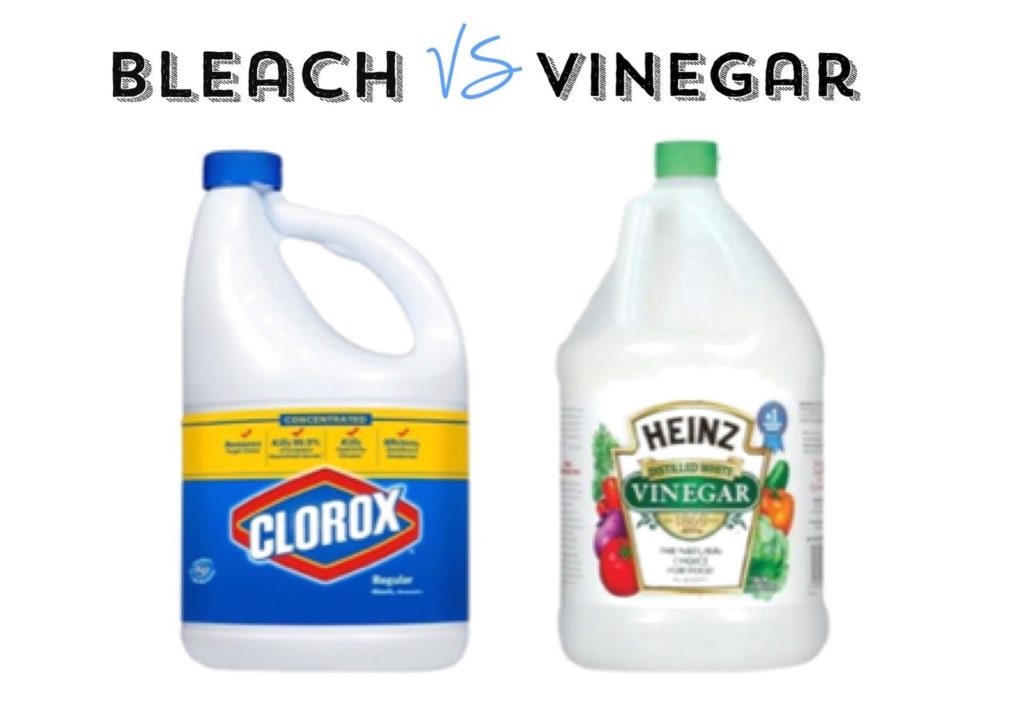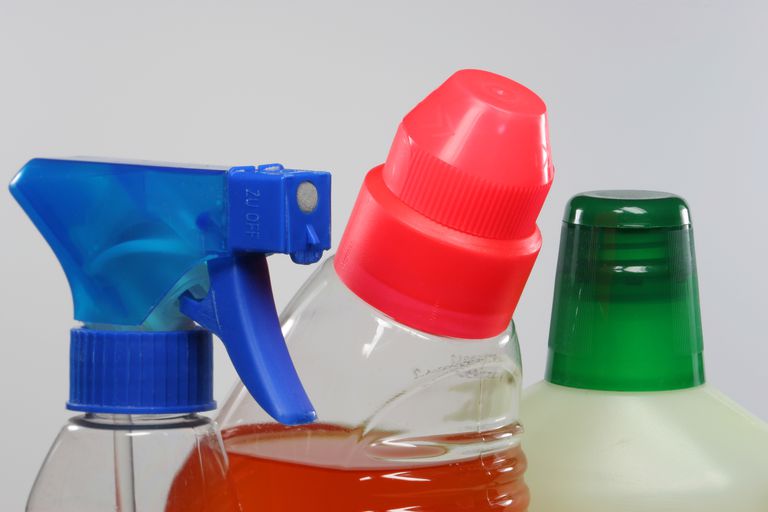When it comes to cleaning chemicals, some substances are just not meant to be mixed together. Some people think that combining two chemicals will result in a much better clean, but in reality it’s only doing you more harm than good. Mixing cleaning chemicals can cause adverse reactions and it may pose a threat to you and your family’s health. Today we’ll be going over a list of cleaning chemicals you shouldn’t mix and what you can do instead to achieve a better clean.
Bleach and vinegar

Mixing bleach and vinegar are one of the most common mistakes people make. Mixing these two substances together creates chlorine gas and can seriously injure your skin, and we’re talking about third degree burns here. The fumes can cause eye irritation and can also damage your respiratory system when inhaled. You should avoid mixing bleach and vinegar at all costs if you’re doing regular household cleaning.
What you can do instead is buy a new bottle of bleach. Keep in mind that bleach has a shelf life and its efficacy will decrease over time. Remember, mixing bleach with vinegar does not make it stronger; it only makes it dangerous. After all, it’s better to pick up a new bottle from the store than having to inhale poisonous fumes.
Bleach and ammonia
Some people think that mixing bleach and ammonia together will create chlorine, but this is definitely false. What it does is produce nitrogen gas which is even more dangerous. It can cause nausea, vomiting, loss of consciousness, and in worse cases, even death.
Combining bleach and ammonia also produces harmful substances like chloramine, hydrazine, nitrogen trichloride, and dichloramine. These byproducts can negatively affect your health so it’s wise to avoid mixing bleach and ammonia as much as possible. What you can do instead is opt for non-toxic alternatives like laundry detergent and floor cleaners.
If you’re looking to clean your bathroom effectively, baking soda or distilled white vinegar will do the trick. Vinegar will help kill bacteria and the baking soda works great for removing mould and mildew on tile grout. These alternatives are less harmful and are eco-friendly as well.
Acetone and bleach
Mixing anything with bleach is rarely a good idea, and that includes acetone. Combining these two substances together can produce a very dangerous compound called chloroform. Acetone and bleach create one of the oldest organic reactions known to create chloroform and this compound can knock you out cold within minutes. It’s extremely toxic and can result in organ damage when inhaled. It deteriorates your respiratory system so much that death is a possibility. Depending on the specific type and quantity of these two substances, you might end up producing phosgene. It might not be as dangerous as chloroform, but it’s also harmful to your health and can cause a burning sensation in the throat and eyes.

What you can do instead is substitute the acetone with water. One part bleach to three parts water is an effective cleaning solution for most household applications. Or you can use bleach all by itself. Just make sure you’re working in a well-ventilated area as inhaling bleach for long periods of time can be harmful to your health. Don’t forget to wear gloves to since bleach can also irritate your skin.
Vinegar and hydrogen peroxide
These two substances are commonly used as natural cleaning solutions. But combining them together is one that you should definitely avoid. You can use them separately while cleaning a surface, but don’t combine them in the same container. Mixing vinegar and hydrogen peroxide produces peracetic acid which can be highly corrosive in high concentrations. Peracetic acid can cause irritation to your eyes, lungs, throat, and skin.
A safer alternative is to use a simple disinfectant spray. It’s inexpensive, it’s less toxic, and it does a great job of killing bacteria without compromising your health and safety. As mentioned before, you can use vinegar and hydrogen peroxide separately, but make sure to wear a mask and avoid combining them at all costs.
Chlorine and ammonia
Chlorine and ammonia react in two different ways. If there is an excess in ammonia, it will produce ammonium chloride and nitrogen. If there is an excess in chlorine, it produces nitrogen trichloride. Unless you’re making a chlorine bomb, don’t mix chlorine and ammonia together. Exposure to the fumes created by these two substances can cause respiratory problems as well as eye and skin irritation.
The solution here is similar with mixing bleach and ammonia. Opt for non-toxic cleaning products instead or use natural cleaning solutions like baking soda and vinegar. These are more than enough for deodorizing and sanitizing bathroom floors.
Glass cleaner and bleach
A common ingredient found in glass cleaner is ammonia. This reacts with sodium hypochlorite which is the main ingredient found in bleach. Mixing glass cleaner and bleach will produce chloramine vapor and can cause chest congestion, teary eyes, sore throat, and a runny nose. It might not be as harmful as chlorine gas, but it can still cause negative health effects.
If you’re looking to give your windows a deep clean, skip the bleach and just use warm, soapy water. Use a sponge to scrub the windows in a circular motion to remove dirt and debris. If there are hard water stains in your windows, use a mixture of half water and vinegar to remove the stains. Finish it off with glass cleaner and wipe your windows with a newspaper or dry towel for that squeaky clean look.
Conclusion
Most people make the mistake of combining two cleaning chemicals together in an attempt to achieve a better clean. Mixing different cleaning products together does not make them more potent, but only more dangerous. The chemicals listed in here are the ones you should avoid mixing together. Playing home chemist is unsafe and it’s best to stick to pre-mixed solutions and natural alternatives to protect you and your family’s health. That is why it is always advisable to consult with the local carpet cleaner in Perth who can correctly advise you on what chemicals are safe to use.
